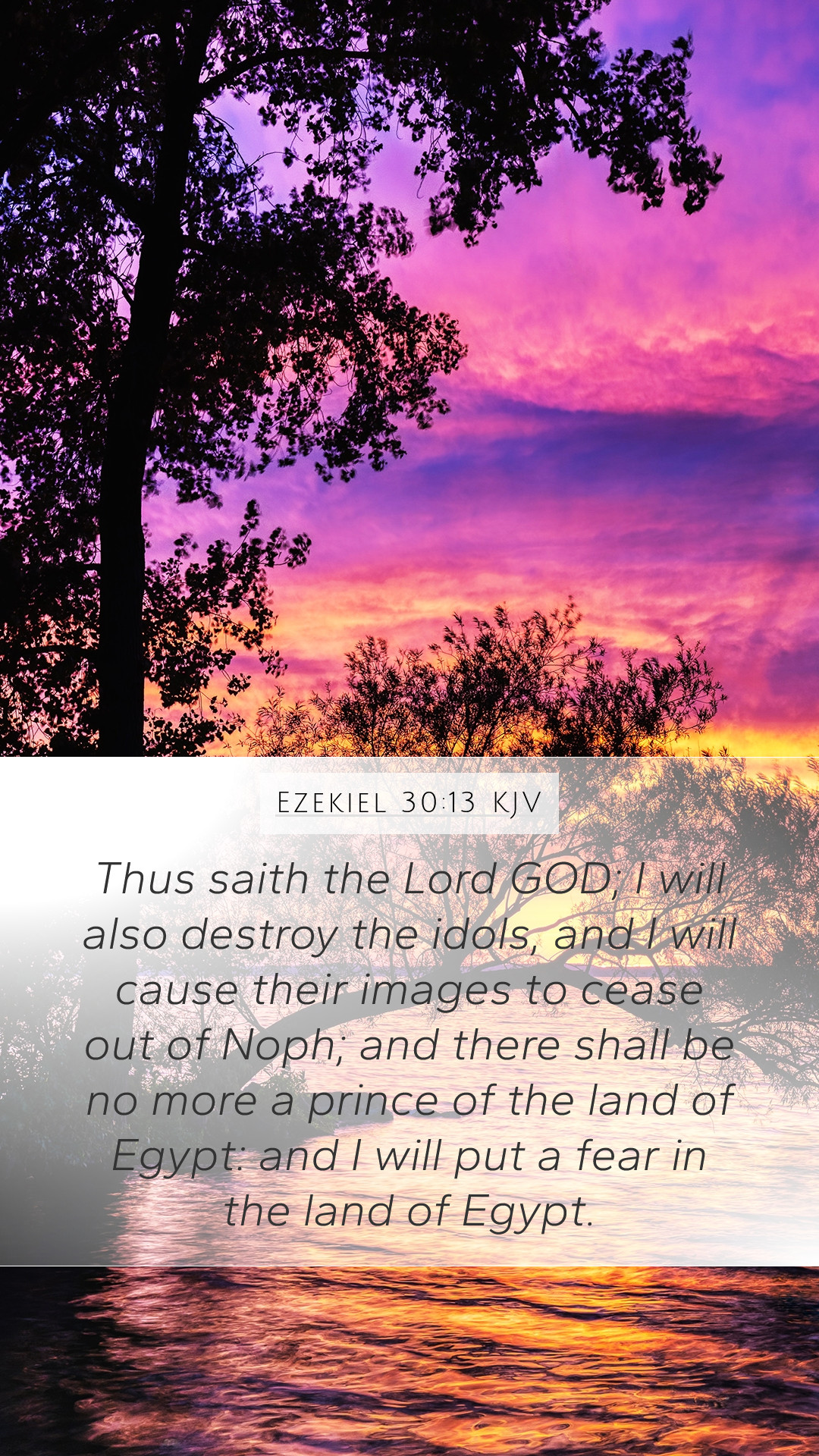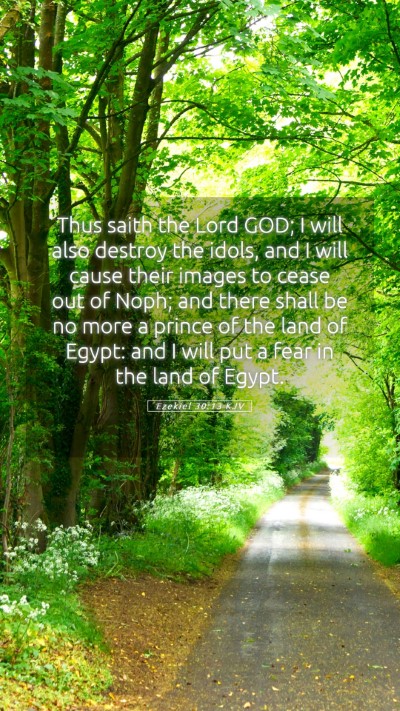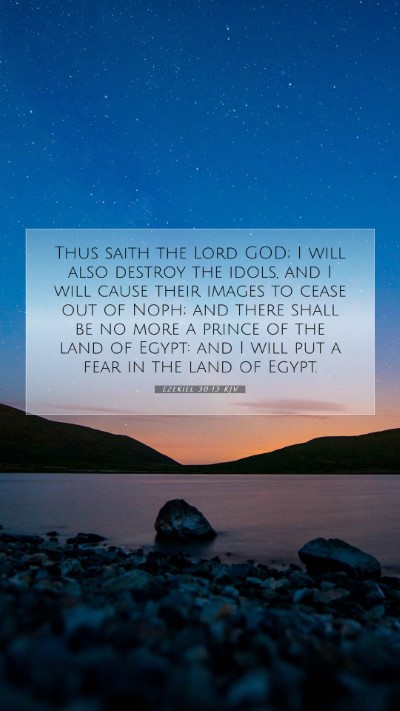Bible Verse Meaning and Interpretation
This verse speaks about God’s sovereign power to dismantle the idols and images in Egypt, specifically in Noph (also known as Memphis), and the ensuing fear that would result in the land. Through this powerful proclamation, God emphasizes the futility of idolatry and offers a warning against the false securities that come from these images.
Insights from Public Domain Commentaries
-
Matthew Henry's Commentary:
Henry elaborates on the destruction of idols, highlighting that God will not only remove the physical images but also terminate the power they seem to possess over the people. The reference to a "prince" signifies the loss of leadership and authority, stressing how idolatry directly impacts political and social order.
-
Albert Barnes' Notes on the Bible:
Barnes emphasizes the context of judgment against Egypt, clarifying that these acts are not mere historical events but a divine judgment for their worship of false gods. He interprets the fear instilled in Egypt as a means of demonstrating God’s ultimate authority over all nations, serving as a corrective for those who have strayed from true worship.
-
Adam Clarke’s Commentary:
Clarke provides a cultural perspective on Noph as a center of worship and power in ancient Egypt. He notes that the destruction of idols symbolizes the eradication of the false belief systems that had enslaved the hearts of the people, paving the way for true repentance and a return to God.
Summary of Interpretive Themes
- Idolatry: The verse serves as a critique of idolatry, illustrating its ultimate downfall under God's sovereign rule.
- Judgment: It foretells the judgment upon Egypt for their idolatrous practices, aligning with the broader theme of divine justice.
- Fear of the Lord: "Fear" exemplifies a theological concept where recognition of God’s power leads to reverence and transformation.
- Hope and Restoration: Although the verse indicates destruction, it also implies that true worship will eventually lead to restoration and a right relationship with God.
Cross References
- Isaiah 19:1 - A prophecy against Egypt that indicates God coming in judgment.
- Ezekiel 29:16 - Further developments regarding Egypt’s leadership and divine judgment.
- Psalms 96:5 - A reminder that all gods of the nations are idols, and the Lord made the heavens.
Application for Bible Study
This verse invites contemporary readers to reflect on the nature of idolatry in their own lives. Just as the idols in Egypt represented misplaced trust, modern believers may also harbor idols—be they materialism, power, or self-reliance—that distract from a genuine relationship with God.
How to Use this Verse in Daily Life
- Bible Study Groups: Examine personal 'idols' and discuss how they can be dismantled through faith.
- Online Bible Study: Use this verse to reflect on global contexts of idolatry and God's ongoing call to repentance.
- Bible Study Resources: Look for materials that aid in understanding the relevance of Old Testament prophecies.
Conclusion
In conclusion, Ezekiel 30:13 is a powerful reminder of God's sovereignty over idolatry, emphasizing that He will not tolerate false worship. This verse encourages believers to analyze their lives and seek authentic worship, providing both a warning and an invitation to deeper faith.


